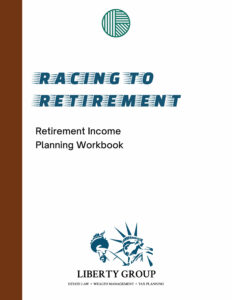Savings
Introduction to Retirement Taxation
Retirement taxation is a multifaceted and crucial aspect of financial planning that’s important to consider when preparing to enter your golden years. It encompasses the intricacies of taxes, deductions, and…
Read MoreFind Your Perfect Sunset: Comparing Our Top Picks for Southern California Retirement Destinations
Ah, Southern California—where the sun melds into the Pacific, palm trees line the streets like guardians of paradise, and the soundtrack of waves crashing provides the rhythm of life. For…
Read MoreDeciding on a Northern California Retirement: Exploring Our Two Top Destinations
California, often renowned for its beautiful beaches, tech hubs, and Hollywood glamour, is also a promising destination for retirees. From the serenity of wine country to the hustle and bustle…
Read MoreThe Ultimate Guide to Financial Literacy in Your 20s
In an age where digital transactions have become the norm and economic landscapes shift with increasing speed, understanding the intricacies of money is more vital than ever. But what exactly…
Read MoreHow Much Money Do You Need to Retire?
Retirement is a significant milestone in life that many of us look forward to, but thinking about retirement also raises pressing questions and decisions that can shape the quality of…
Read MoreGolden Years in the Golden State: Our Top Retirement Destinations in Central California
The allure of California is undeniable, from its iconic coastlines to its sun-soaked vineyards. But as retirement beckons, the question arises: Where in this vast and varied state should one…
Read MoreHealthcare in Retirement: Navigating Medicare, Long-Term Care, and Health Expenses
The golden years of retirement beckon with promises of relaxation and more time to enjoy hobbies and loved ones. Yet, with these years comes an important and often complex—and overlooked—consideration:…
Read More9 Retirement Planning Mistakes You Should Know About
We’ve all heard the old phrase: Mistakes happen. As is the case with anything else in life, this phrase rings true when it comes to retirement planning. Retirement planning is…
Read MoreWhat Is 401(k) Vesting?
Employer matching of 401(k) contributions is a common employee benefit. If you work for an employer that matches 401(k) contributions, your retirement account can grow faster. For example, let’s say…
Read MoreWhat Is the Thrift Savings Plan?
You may have heard of a 401(k), traditional IRA, and Roth IRA—they’re all retirement plans that allow you to save and invest for retirement. A lesser-known plan is the federal…
Read More










